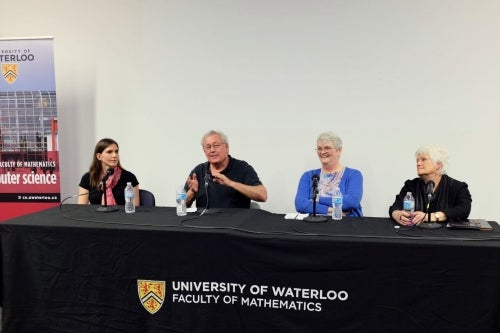The David R. Cheriton School of Computer Science is celebrating 50 years of computing innovation in 2017, but computing as a field of study at UWaterloo goes back to the earliest days of the University.
Although the School has always been and remains an important part of the Faculty of Mathematics, the work done by its members - students, faculty and staff - has had a tremendous and transformational impact in every area of the campus, and beyond.
The stories and videos on these pages recount the history of the School and its people as we reflect on our past and look ahead to the future of computing at Waterloo.
* * * * * * * * * *
STORIES:
History of Computing at Waterloo
Education and Academic Excellence
Innovation and Entrepreneurship
VIDEOS:
History of Computer Science at Waterloo
Transformational Computer Science Research and Innovation
Computer Science 50th Anniversary Panel Discussion
History of Computing at Waterloo
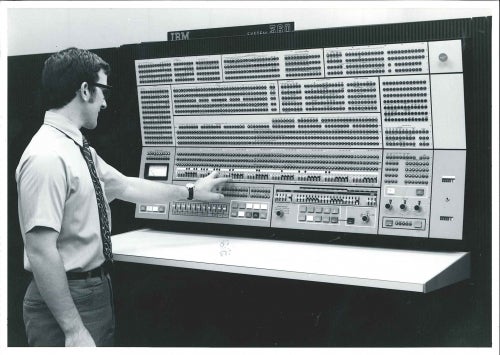
There’s a story that Don Cowan never gets tired of telling.
It’s about how an IBM 360/75 mainframe, the most powerful computer in Canada at the time, and the same model of computer that NASA would use to send astronauts to the Moon, was acquired and installed in a building that would house the University of Waterloo’s new Faculty of Mathematics.
“We somehow had decided that there would be a computer in the centre of the building,” Cowan said of the structure, which opened in 1968 and still stands on campus today as the Mathematics and Computer (MC) Building.
“Great, we can plan for a computer, but where’s it going to come from?”
Click here to read more on the History of Computing at Waterloo
History of Computer Science at Waterloo
This video explores the early days of computing at Waterloo, and how the David R. Cheriton School of Computer Science established itself as a leading centre of computing education. Featuring interviews with professors Scott Campbell, Don Cowan, and David Taylor, and photographs courtesy of Special Collections & Archives, University of Waterloo Archives, University of Waterloo Library.
Women in Computing
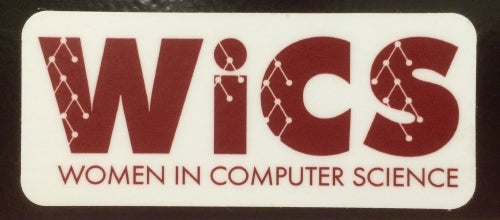
There’s a very good reason why Jo Atlee decided to teach Computer Science at the University of Waterloo after completing her PhD.
She was looking for an academic position in 1992 and had a number of interviews at various institutions, but there was something about Waterloo that stood out.
“Everywhere else I interviewed, I would have been the first or the second woman in the department. Here, I was the fifth,” she said. “I didn’t think there was going to be any issues of gender equity.”
And gender equity is something that’s important to Atlee, who is the Director of Women in Computer Science within the David R. Cheriton School of Computer Science.
Click here to read more on Women in Computing
Research Excellence
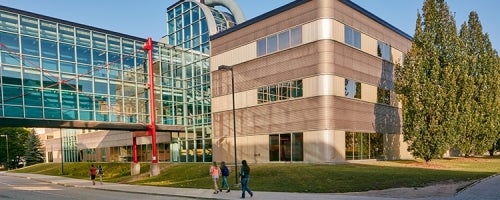
Some of the most interesting transformative research happening in the David R. Cheriton School of Computer Science at the University of Waterloo hasn’t come to public attention, or even to fruition.
Yet.
But you have to presume that it will happen, in a School and in a University that’s already done so much to transform our society.
For instance, think about the smartphone in your hand, or in your pocket. An early smartphone, the BlackBerry, was born in Waterloo. Michael Lazaridis, a former Waterloo Engineering and Computer Science student, kicked off the smartphone revolution. In doing so, he completely changed the way we communicate with each other.
“It’s amazing how many people use computing these days, between the Web and iPhones and other cell phones and social media, and it’s all being driven by computers and computer applications,” said Frank Tompa, a Distinguished Professor Emeritus in the Cheriton School of Computer Science. “And yet so many people think that they’re not interested at all in computing, or in advancing computing."
Click here to read more on Research Excellence
Transformational Computer Science Research and Innovation
The David R. Cheriton School of Computer Science is home to computer science researchers who are passionate about transformational research that inspires others to innovate and develop their ideas. This video explores this topic, featuring interviews with professors Srinivasan Keshav, Kate Larson, and Frank Tompa.
Education and Academic Excellence
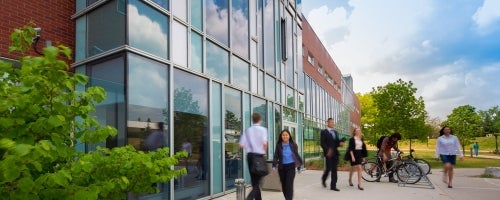
It’s one thing to be a pioneer in computing education, as the University of Waterloo was in the 1960s.
It’s quite another thing to maintain a place of academic excellence, as the University of Waterloo has done in its Faculty of Mathematics and the David R. Cheriton School of Computer Science.
The School, which is celebrating its 50th Anniversary in 2017, continues to grow and thrive. It is consistently cited as one of the top university computer science departments in Canada and internationally by ranking agencies.
It’s not easy.
Stephen Watt, the Dean of Mathematics at Waterloo and a graduate of the Cheriton School of Computer Science, said there’s a lot of hard work that goes into maintaining the sort of virtuous circle that perpetuates continued academic excellence and growth.
Click here to read more on Education and Academic Excellence
Innovation and Entrepreneurship
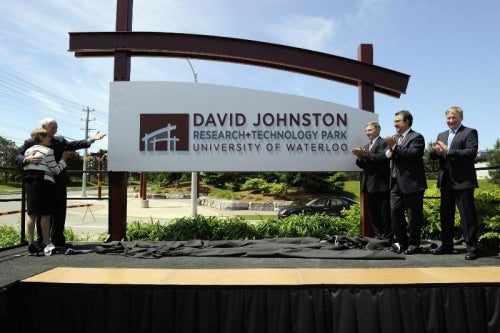
The idea was never to be entrepreneurs.
The idea was to innovate and to solve problems.
But if there was a practical application to a solution, and if that application could make some money for the problem solvers, that was just fine.
That’s been the impetus behind many a spinoff company to emerge from the University of Waterloo, and particularly from the David R. Cheriton School of Computer Science.
And it was arguably the driving force behind establishing Waterloo – the City as well as the University – as a prominent tech hub, a distinction that has resulted in the establishment of the David Johnston Research + Technology Park on the institution’s north campus.
Click here to read more on Innovation and Entrepreneurship
Computer Science 50th Anniversary Panel Discussion
The David R. Cheriton School of Computer Science hosted a special panel discussion and anniversary celebration on March 31, 2017. Four past members of Computer Science shared stories from their time at Waterloo: former professor Kellogg S. Booth, and alumnae Joanne McKinley, Sylvia Osborn, and Liz Sandals. The moderator was Professor Dan Brown.
Click here to watch a recording of this panel discussion
